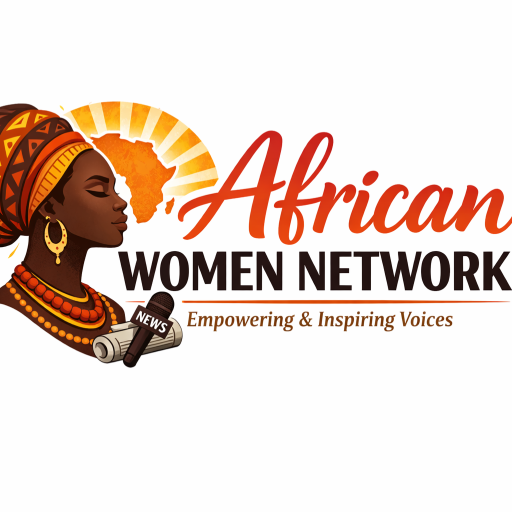
African Development Bank (AfDB), in collaboration with the Climate Investment Funds (CIF), has launched the Gender and Renewable Energy Country Diagnostics initiative.
This ambitious program delves into the intersection of gender equity and renewable energy access in Ghana, Liberia, Mali, Lesotho, Madagascar, and Malawi.
Officially introduced at a virtual event on June 30, 2025, this diagnostic series represents a major stride toward integrating gender-responsive strategies into national energy agendas. Developed under CIF’s Scaling Up Renewable Energy Program (SREP), the project reinforces AfDB’s commitment to embedding gender considerations across its climate finance portfolio.
Targeting the Gender Gap in Green Energy
Despite widespread acknowledgment of gender equality’s importance for economic growth and climate resilience, African women continue to face significant barriers in the renewable energy sector,from limited representation in leadership and technical roles to restricted access to business opportunities.
The new diagnostics aim to address these gaps by providing:
- Evidence-based, country-specific recommendations to boost women’s leadership in energy policy and governance
- Strategies for financial inclusion, using de-risked financing models to support women-led energy enterprises
- Initiatives to enhance technical skills, entrepreneurial readiness, and information access for women entering the clean energy workforce
Additionally, the reports examine the systemic obstacles preventing women’s full participation in the energy transition and outline actionable reforms to dismantle these barriers.
Country-Specific, Action-Oriented Insights
Unlike broad policy summaries, these diagnostics offer tailored insights, analyzing the unique social, economic, and cultural landscapes of each country. For example, in Malawi, women’s lack of land ownership limits their ability to secure financing for renewable energy projects. In Liberia, entrenched social norms restrict women’s access to technical education. The diagnostics propose concrete reforms and targeted pilot projects to address such localized challenges.
Virtual Launch Sparks a Call to Action
The launch event, hosted by AfDB’s Climate Change and Green Growth Department alongside the Gender and Women Empowerment Division, brought together stakeholders from government, the private sector, civil society, and international partners. Al Hamndou Dorsouma, Manager of the Climate Change and Green Growth Department, underscored the crucial link between gender equality and innovation in the climate and energy sectors. He called for rapid implementation of the diagnostics’ recommendations and encouraged governments to transform insights into actionable policy and business reforms.
“Gender equality is a driver of innovation and sustainable growth,” Dorsouma stated. “We must prioritize institutional coordination, advance gender-responsive financing, and ensure inclusive decision-making at every level.”
Nathalie Gahunga, Manager of the Gender and Women Empowerment Division, closed the event with a rallying message to governments, donors, NGOs, and the private sector: “The real work begins now. Let’s break down barriers and foster a renewable energy future where African women lead, innovate, and succeed.”
From Data to Action: A Regional Blueprint
A highlight of the event was a presentation by Fewstancia Munyaradzi, Executive Director of Rand Sandton Consulting Group, who outlined a regional roadmap to:
- Bridge financing gaps for women-led energy ventures
- Strengthen institutional capacity for gender-sensitive program design
- Integrate gender-responsive practices into project planning and execution
The diagnostics also stress the importance of collecting sex-disaggregated data, conducting national gender audits within energy ministries, and establishing monitoring systems to track progress and accountability.
Building on Previous Successes
This new initiative builds on AfDB and CIF’s earlier work in East Africa, where gender and sustainable energy country briefs for Kenya, Uganda, Rwanda, and Tanzania were published in 2020. Those efforts helped lay the foundation for gender-aware energy investments and demonstrated the value of national engagement and robust data collection.
The current diagnostics go further, providing operational tools and financial strategies to scale successful approaches across additional regions.
Gender at the Heart of AfDB’s Climate Strategy
Gender integration is a core element of AfDB’s climate agenda, with all Bank-supported climate projects now incorporating gender mainstreaming from design to evaluation. The Gender and Renewable Energy Diagnostics reflect this institutional priority, offering practical guidance to African countries on:
- Centering gender in clean energy investment decisions
- Expanding women’s participation throughout the energy value chain
- Building more inclusive and resilient energy systems
A Pathway for a Just Energy Transition
As Africa works to expand sustainable energy access and tackle climate change, these diagnostics serve as a strategic framework for governments, donors, and businesses. They reaffirm that gender inclusion is fundamental to achieving sustainable development.
With enhanced tools, data, and growing political commitment, African nations are poised to unlock the full potential of women in driving a clean, inclusive energy future.




